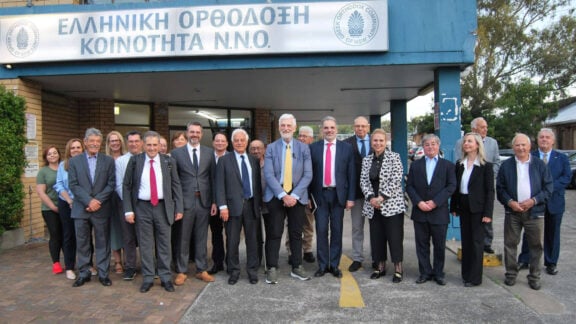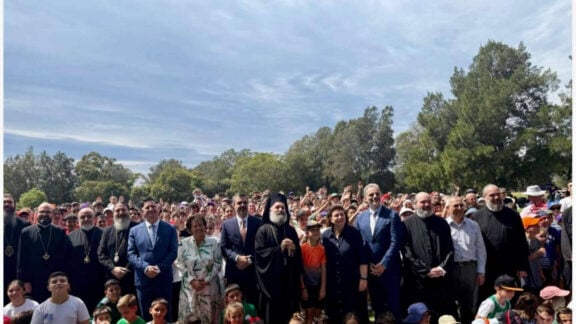Bill Shorten, the prime minister who never was, has announced his departure from the world of politics.
The former Labor leader, who narrowly lost the 2019 federal election, revealed he would step down in February to become vice-chancellor at the University of Canberra, bringing his 17-year political career to a close.
“I had the very amazing privilege of serving as leader of our party and the movement which has been such an irreplaceable part of my life,” he told reporters in Canberra on Thursday.
“Labor is at its best when we are the party of ambition and compassion, when we use the power of politics to stand up for those who were denied power by the circumstances of their birth.
“It’s what drives our entire government, it’s what continues to drive me every day.”
There was still more work to be done, the 57-year-old said, but he was proud of everything he had already achieved.

Mr Shorten was elected as MP for the Melbourne electorate of Maribyrnong in 2007 after rising to national prominence as a negotiator during the Beaconsfield Mine collapse in 2006 when a miner was killed and two others were rescued.
His political stature continued to rise during the governments of Kevin Rudd and Julia Gillard as a member of the ministry, and when Mr Rudd resigned in the aftermath of the 2013 election, Mr Shorten took his chance and won.
He led the Australian Labor Party for six years and looked poised to take Australia’s top job.
But at the 2019 election, his party was dealt a surprise defeat, and Mr Shorten resigned from the Labor leadership.
He returned to cabinet as the National Disability Insurance Scheme and government services minister after Labor won the 2022 federal contest.

Prime Minister Anthony Albanese thanked Mr Shorten for his work and paid tribute to his storied career.
“He united the party, he re-energised the caucus, he saw off two prime ministers, and he rebuilt Labor into a strong opposition and a genuine alternative government,” he said on Thursday.
“Through his years as leader, no one worked harder than Bill.
“No one brought more energy, enthusiasm, ideas and ambition to advocating for the need for a Labor government.”

For years, Mr Shorten has championed welfare recipients by speaking out about the former coalition government’s unlawful debt collection scheme.
But he has also attracted criticism from disability advocates over proposed changes to the NDIS.
Asked if he had any regrets, Mr Shorten turned to Frank Sinatra’s nostalgic ballad.
“Regrets, I’ve had a few, and then again, too few to mention. I did what I had to do, but much more than this, I did it my way,” Mr Shorten said.
Opposition Leader Peter Dutton acknowledged the former Labor leader’s contributions and congratulated him for his time in Parliament.
“He showed a level of dignity and respect to our democratic process that he should be honoured for,” he told reporters in Sydney.

A slew of former Liberal prime ministers have also wished Mr Shorten well with Scott Morrison saying “there is life on the other side”, John Howard hoping he “finds satisfaction and purpose in his future life” and Tony Abbott offering the strongest words of all.
“Bill Shorten’s retirement is a loss for our parliament,” Mr Abbott wrote on X, formerly Twitter.
“Yes he’ll continue to serve our country in the academe but we need more people of courage and conviction in our public life and Bill has been a striver for the higher things in his time in the parliament.”
Prior to his career in politics, Mr Shorten was a prolific union figure, having been elected as the Australian Workers’ Union’s Victorian state secretary and later national secretary.
The union’s current national secretary Paul Farrow said Mr Shorten had “not just extraordinary vision and strategic nous, but also an incredible work ethic” and was now leaving an indelible legacy.
A SUPPORTER OF THE GREEK COMMUNITY
What many in the mainstream may not know, is that the Member for Maribyrnong, built strong and enduring links with the Greek community.
Throughout his career, Shorten was a regular at Greek celebrations like the Antipodes Festival, and commemorations such as, Greek Independence Day, and Ohi Day.
His support for Greek language learning, cultural events, and welfare services cemented his place as a champion for the Hellenic Australian community.
Shorten was vocal in his calls for an end to Turkey’s occupation of northern Cyprus. In July, representing the prime minister, he addressed the crowd at Fed Square during the commemoration of the 50th anniversary of Turkey’s invasion of Cyprus.
The former party leader – who nearly won the 2019 election – understood the role of multicultural media in preserving democracy, and serving the information needs of ethnic communities. At a Multicultural Round Table convened by then Prime Minister Julia Gillard in 2011, Shorten emphasised the diverse demographics of his electorate, Maribyrnong, “34 per cent of my voters were born overseas… and 51 per cent speak a second language other than English”.
He then highlighted this masthead as a powerful example. “Without giving a particular plug to a particular media outlet, I happened to see the newspaper distribution list for the local newsagency and Neos Kosmos outrates The Australian,” he said in parliament.
Bill Papastergiadis, the president of the Greek Community of Melbourne, (GCM), talking to Neos Kosmos said, “Shorten was beside us not only at our Festival but at all of our key events.”
“We are grateful to have had a friend in Bill Shorten – a true warrior for our community and multiculturalism as a whole.”
“Bill understood the Greek diaspora intimately and was active for in his efforts to secure significant grants for the Greek Community of Melbourne.”
In both his political and social life, Shorten maintained a close relationship with the Greek community, leaving an impact that will be remembered well after his departure from public office.
*With AAP









